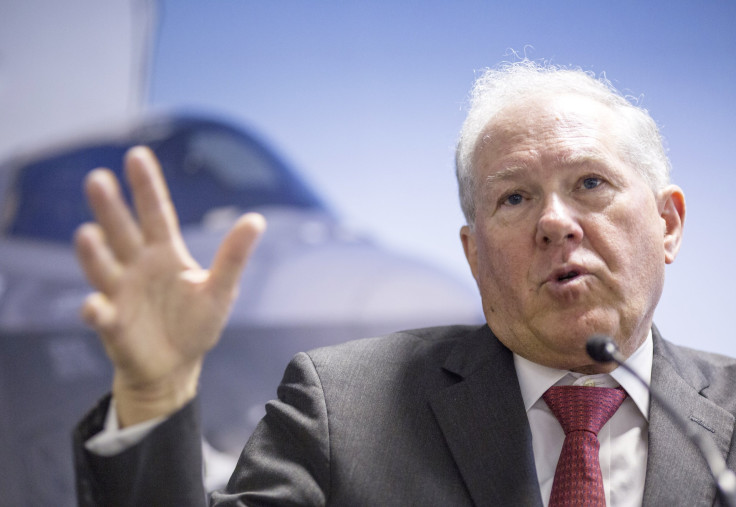Pentagon Sees Big Impact If Congress Fails To Pass Budget

By Idrees Ali and Andrea Shalal
WASHINGTON (Reuters) -- The U.S. Defense Department would protect spending on operations and readiness if Congress fails to pass a budget for fiscal 2016, leaving procurement programs to shoulder most of the impact, the Pentagon's chief arms buyer said Tuesday.
Defense Undersecretary Frank Kendall said a long-term continuing resolution would maintain spending at last year's levels. That could cause the department to break multi-year agreements with companies and result in expensive penalties, he said.
Kendall was speaking at an event in Arlington, Virginia, at Defense One, a publication that covers the military.
After the event, Kendall told reporters that he expected a defense authorization bill to be passed without the Overseas Contingency Operations (OCO) in it. The OCO, also known as the war fund, is money intended to fund ongoing wars and does not count against budget caps.
President Barack Obama has said he would veto the $612 billion defense authorization bill under consideration in the U.S. Senate, because of the "irresponsible way" it boosts military spending. The bill includes money for the OCO.
"If the bill is vetoed, my expectation is that part of the bill would be stripped out and the remainder of the bill would be passed," he said, referring to the OCO being taken out.
The Senate voted on Tuesday to limit debate on the bill, clearing the way for a vote on passage.
One lobbyist said lawmakers could potentially agree to carve out the OCO provisions and pass the policy bill to ensure that various acquisition and compensation reforms proceeded.
During the event, the acquisition chiefs for the different armed services spoke of their concerns about a continuing resolution and the impact it would have on their programs.
The top Army arms buyer, Heidi Shyu, said about 400 programs would be affected by a year-long continuing resolution. She added that they could not expand work on the Armored Multi-Purpose Vehicle (AMPV), awarded to BAE Systems Plc.
Sean Stackley, the Navy's arms buyer, said a yearlong continuing resolution or sequestration would have an $11 billion impact on the Navy.
Stackley said new starts would have to be slowed down including the George Washington aircraft carrier, refueling and complex overhaul, and the Navy TAO(X) oiler shipbuilding program.
(Reporting by Andrea Shalal; Editing by Chizu Nomiyama and David Gregorio)
© Copyright Thomson Reuters 2024. All rights reserved.











